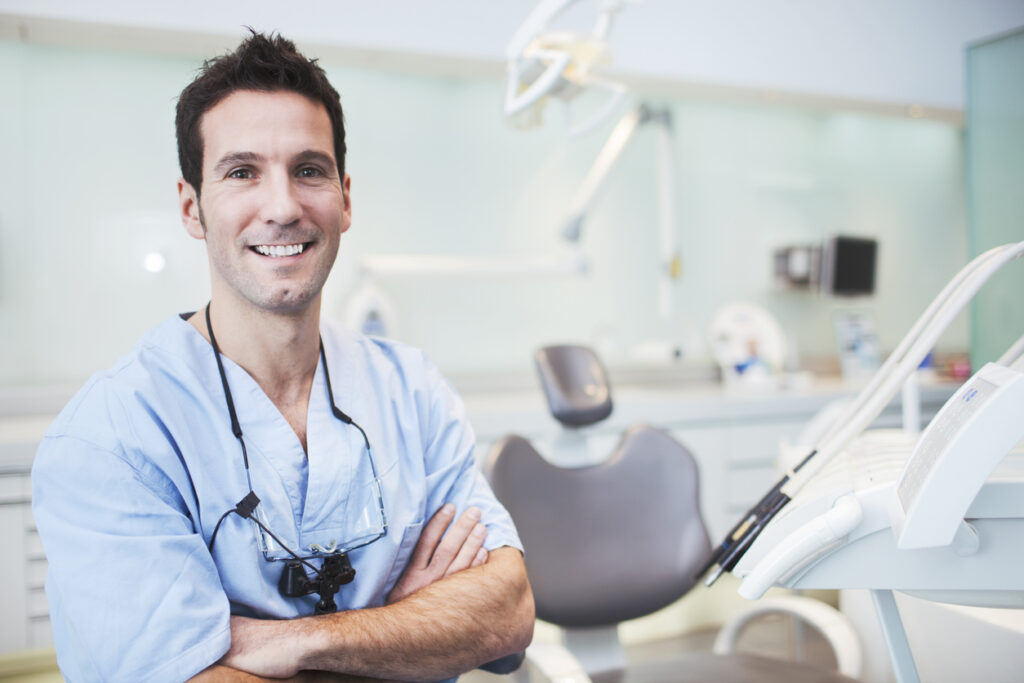Buying an Established Dental Practice Vs Starting Your Own Dental Clinic
For potential dental practice owners, a decision needs to be made as to whether to buy an established practice or start your own practice. If you have the funds and business skills, then planning, launching, and growing a new business can be a very appealing option for some dentists. Some dentists may have worked as contractors or locums for long enough to have learnt about the day-to-day aspects of running a clinic and feel they are ready to undertake this step.
You can have more freedom and control over a new practice, from the location, the fit-out and design, right through to choosing employees, reception staff, dental assistants, workflows, rosters and practice themes, direction, and culture. When starting a practice, the initial ownership means you can build a practice that follows and identifies with our vision, and one that can potentially meet more of our financial and lifestyle goals.
However, starting a new practice can be both challenging and stressful. Designing a compliant practice, getting permits, purchasing equipment, instruments and stock, hiring staff, committing to ongoing practice management, marketing and advertising and growing a sustainable patient base, are steps that can be time-consuming and expensive.
That’s why many dentists choose to buy an existing dental practice that’s already functioning It’s generally the lower-risk option because an older practice will already have a clear client base, so revenue from patient fees is likely to continue during the post-settlement and handover period. An existing practice also provides the potential purchaser with the opportunity to experience it first-hand, offering greater certainty and a clearer picture of future profitability.

Advantages of buying an established dental practice
Some of the other advantages of buying an established dental practice include:
- The existing client base provides revenue and cash flow. When you’re buying a dental practice with an established patient base, there will be cash flow from the start and when taking over which enables the business’s financial commitments to be better met.
- Experienced staff means that we already have employees who are familiar with the running of the clinic and its processes and are familiar with patients. The staff usually won’t need to perform more training to be competent and efficient so we can save time and costs.
- Obviously, there will be no time and effort required for setting up You don’t need to factor in lengthy time to plan, build and set up a new practice. Existing equipment, supplies, furniture, and IT infrastructure should already be in place.
- The practice already has goodwill and hopefully, an established reputation: The suburb and its residents will already be familiar with and know of the practice and the dental services it can provide.
- Reduced marketing requirements: You won’t need to invest in an extensive launch campaign, which will save on marketing and advertising costs.
Disadvantages of buying an established dental practice
Of course, there are also disadvantages when buying an existing practice. These include:
- Aged or dated equipment: An older dental practice may have old equipment, furnishings or outdated IT hardware systems and IT infrastructure.
- Employee issues: Some staff members may not initially like any new systems or changes we wish to make, or we may not be happy with aspects of employee workplace performance and overall staffing requirements and structure.
- Rebranding costs: You may want to rebrand the practice, and this will involve new marketing and promotional costs, or redesign the physical premises, resulting in added cost. Signage may have to be redone and the exterior of the premises freshened up to gain more street appeal.
- The professional reputation of the practice previously and currently: The practice may have received negative feedback or reviews or been confronted with some reputational damage in the past which can be difficult to rectify especially with online reviews.
- Loss of goodwill: Often for a variety of reasons patients may decide to leave after any change of ownership. Fee structures and new treatments and treatment plans may be off-putting to existing clients. Existing patients aren’t guaranteed to stay with the practice but may follow the previous dental professionals to their next practice if the previous owner leaves to another clinic. Often the principal will stay and or their will be restraint of trade clauses to prevent this situation. The previous owner staying for a period is often crucial to the initial success of the new business.
Important considerations when buying a dental practice.
When deciding whether buying an established practice is the right decision for you, there are some important factors to consider:
- Location of the clinic and price of the practice: A practice that’s located in a busy metropolitan area may have a higher purchase price, but then access to more clients over the long term than a clinic located in a country area. We should always get our professional team of accountants to analyse and review the practice’s financial statements to assess its value and consult with business brokers like Palladium business brokers for appraising the business. We should also plan to review future income earning and growth potential.
- Owning the freehold. There can be situations where the previous owner still owns the property, or will it involve leasing the premises? We would need to review the terms of the lease and are we able to takeover and continue the lease for at least a longer number of years. Often a long tenure is much more secure, and financiers will often demand this.
- The value of dental equipment and instruments and stock. Checking what’s included in the sale. We need to check what needs to be updated and its associated costs. How current is IT hardware and what type of clinical and billing software is present at the practice? Does the practice have cyber security, IT and strong privacy and record management systems in place?
- Other assets or intangible asset value: These can include actual client lists and patient records, the clinic’s previous and current reputation, the relationships with patients and specialists, and the expectation of a good recall and return visits from patients. Does the practice have an agreement with any health insurance providers? It can be a good idea to seek a professional appraisal or even a valuation before buying a business. Palladium business brokers provide sellers with a free confidential appraisal of their business.
- Are there Employee liabilities: New practice and business owners usually take over the existing staff contracts. With the help of our legal representative, we need a clear picture of current employees’ annual leave, sick leave, long service leave and tax liabilities, before entering any contract of sale as these can have a bearing on the sale price.
- Future considerations: Growth potential and any planning issues that may affect the location. How long will the previous owner stay? Are there any developments or council regulations planned for the location? Are there opportunities to either expand, improve, and grow the business through marketing and new treatments?
- Professional legal and financial advice is vital to making sure of a smooth transition into owning and managing your own practice – whether that’s buying an established dental practice or commencing a new one. Often the choice between setting up a new clinic or purchasing an established dental clinic boils down to the practitioner’s individual circumstances, financial considerations, stage of their professional career and their desire and passion for business development. Palladium Business brokers can help dentists achieve their desired outcomes whether they are selling or buying a clinic.
Written by
Dr Philip Baker
As a former healthcare professional of 28 years, Dr Philip Baker is now a registered Sales Agents Representative and Business broker. Philip has been involved in numerous sales and purchases of large successful dental clinics. Philip is a Licensed Agents Representative and a member of the REIV and is also a member of the Australian Dental Association (35 years), Australian Institute of Business Brokers. Phil’s extensive experience and knowledge, along with his professional manner will help his clients achieve their ultimate aims and help achieve successful sales and purchases for their health care businesses.

Why Dentists Should Use Palladium Business Brokers to Sell Their Practice
Expertise We have intricate knowledge of dental clinics, how they operate and how to assess their financial performance. We can advise and guide you from…
Buying an Existing Medical Practice Vs Starting Your Own Medical Clinic
Potential medical practice owners must decide whether to purchase an established medical practice or start one from scratch. If organizing and managing a project doesn’t…


